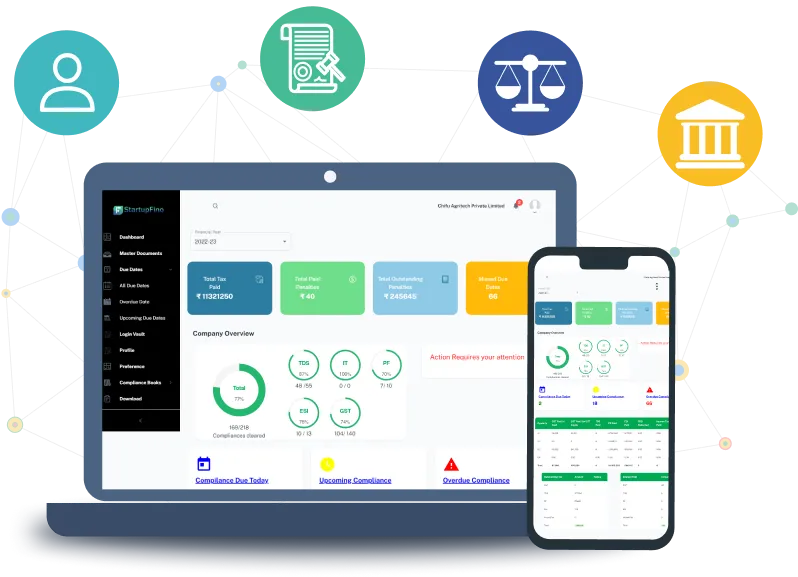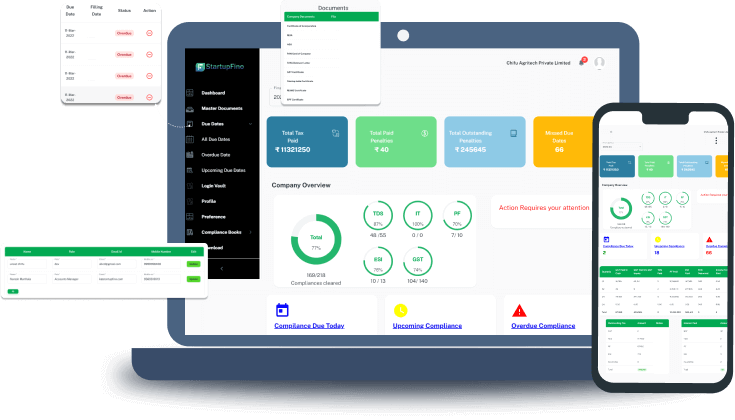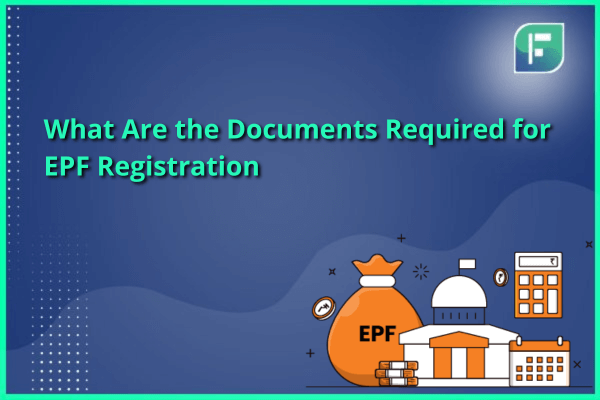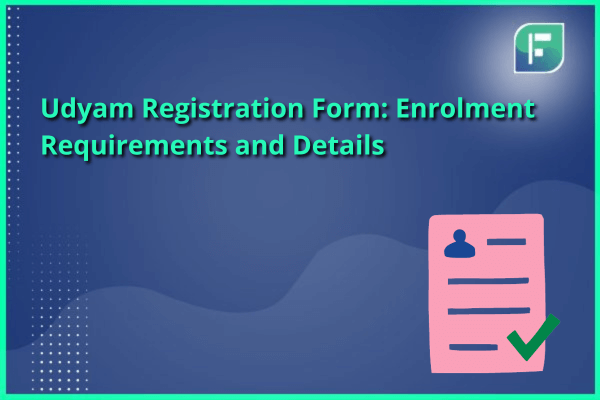The Employees' Provident Fund is a government-backed savings initiative designed to furnish financial security and retirement benefits to employees. Contributions to the EPF accrue over time, earning interest and culminating in a lump sum payout during retirement or significant life events such as disability or demise. Functioning as a long-term savings mechanism, EPF registration ensures individuals a strong financial footing in their post-employment years.
The central authority overseeing the Employee Provident Fund is the Employee Provident Fund Organisation, which holds a significant global position as one of the largest social security organisations. The EPFO meticulously manages records of various transactions in strict adherence to the organisation's regulations.
Benefits of EPF Registration
Registering for the Employees' Provident Fund offers several benefits to employees. Following are the advantages:
1. Retirement Savings
Registration with EPFO enables individuals to accumulate a substantial retirement corpus over their working years. Regular contributions from both the employee and employer, along with the interest earned, help build a long-term savings pool.
2. Financial Security
EPF provides financial security post-employment, ensuring individuals have a stable income source during their retirement phase when regular earnings cease.
3. Tax Benefits
Contributions made to EPF are eligible for tax deductions under specific tax laws. This allows individuals to reduce their taxable income and potentially lower their overall tax liability.
4. Interest on Savings
The EPF contributions earn a competitive rate of interest, which helps grow the savings over time. The accumulated interest adds to the final corpus, enhancing the overall retirement benefits.
5. Loan Facilities
Registration with EPFO allows members to avail themselves of certain loan facilities against their EPF balance for various purposes such as housing, education, or medical emergencies.
6. Social Security
EPF serves as a social security measure, providing a safety net for employees. It ensures a sense of financial stability and protects against unforeseen circumstances such as disability or sudden financial crises.
7. Nomination Facility
Registration with EPFO allows individuals to nominate their dependents, ensuring that in the event of their demise, the accumulated funds are transferred to the nominated beneficiaries smoothly.
8. Easy Transfer of Funds
EPF membership can be transferred easily when switching jobs, allowing individuals to carry forward their accumulated savings and continue contributing to their retirement fund seamlessly.
9. Provident Fund Withdrawal
In certain situations, such as education or medical emergencies, members can withdraw a portion of their EPF savings to meet urgent financial requirements.
10. Financial Discipline
By participating in EPF, employees cultivate a habit of regular savings, promoting financial discipline and planning for their future needs.
Importance of EPF Registration
It is important to go through the process of registration with EPFO for the following factors given below:
1. TDS Deduction:
Deduction of TDS from employees' salaries requires Registration with EPFO.
2. Challan Generation for Remittances:
Processing of remittances is only possible after generating challans through the EPFO employer portal.
3. Risk Coverage:
EPF provides coverage for risks associated with retirement, illness, or death of employees and their dependents.
4. Uniform Account:
EPF accounts are consistent and transferable to any other place of employment.
5. Employee Deposit Linked Insurance Scheme (EDLIS):
All PF account holders are eligible for the EDLIS, which deducts life insurance premium at a rate of 0.5% of the salary.
6. Long-term Goals:
Accumulated PF amount can be useful for fulfilling future goals, like higher education or marriage.
7. Emergency Needs:
PF amount can provide immediate financial assistance for unforeseen events like family gatherings, mishaps, or illnesses.
Eligibility Criteria for EPF in India
The eligibility criteria for EPF are as follows:
1. Mandatory Registration:
Establishments with a workforce exceeding 20 employees must register under the EPFO in accordance with the prescribed guidelines.
2. Optional Registration:
Organisations with less than 20 employees have the choice to voluntarily register for EPF, even though it is not mandatory for them.
3. All Recognised Establishments:
Any type of establishment that meets the criteria outlined in the EPF Act must register with the Employees' Provident Fund. This applies to all recognised establishments, regardless of their size or nature of operation.
Documents Required for EPF Registration
For registering with EPF, the following documents are must:
1. Business Information:
- Proof of PAN or CoI.
- Address verification for the establishment premises.
- Identification and address verification for Directors/Partners/Proprietor.
- Details of residents and all members, including their addresses and contact information in the case of societies or trusts.
- Partnership Deed/LLP Agreement/Memorandum of Association and Articles of Association.
- Employee details, including nominee information and salary details.
- Cancelled bank account cheque.
2. Individual Identity Proof (Any of the following):
- Passport
- Aadhar card
- Voter ID
- Driving licence
3. Individual Address Proof (Any of the following):
- Self-attested copy of a recent telephone/mobile or electricity bill
- Bank account statement (less than 2 months old)
4. Address Proof for Proprietorship/Partnership/LLP/Company:
- Telephone/mobile/electricity/gas bill (less than 2 months old)
- In the case of rented premises, a notarised copy of the rent agreement along with a No-Objection Certificate (NOC) for conducting business.
- In the case of self-owned premises, the registered title document.
What is the Rate of Contribution under EPF?
The contribution rate for EPF varies based on the number of employees in an establishment:
For Establishments Hiring 20 or More Employees:
The employer as well as the employee are required to contribute up to 12% of the employee's salary, which includes basic wages and dearness allowances.
For Establishments Hiring Less Than 20 Employees:
Certain establishments contribute at a rate of 10% of the employee's basic wages instead of 12%.
This applies to establishments that meet one or more of the following criteria:
- Have up to 10 employees and have voluntary registration under EPFO.
- Have incurred losses during the previous year.
- Belong to specific sectors such as beedi-making factories, etc.
Note:
Though the EPF interest rate has been adjusted many times, for the fiscal year 2022-23, the EPF contributions will accrue an interest rate of 8.1%.
Procedure for EPF Registration
For registering with EPFO in India, the following steps must be followed:
Step 1: Access the EPFO Website
- Visit the EPFO website and locate the "Establishment Registration" button on the homepage.
Step 2: Unified Shram Suvidha Portal (USSP) Sign-Up
- Click the "Establishment Registration" button to be redirected to the Unified Shram Suvidha Portal (USSP) sign-up page.
- Click "Sign Up" and provide the necessary details to create your account.
- After sign-up, log in to USSP.
Step 3: Select Registration for EPFO-ESIC
- Once logged in, select the "Registration For EPFO-ESIC" button.
- Choose "Apply for New Registration."
- Select "Employees' Provident Fund and Miscellaneous Provision Act, 1952" from the options and click "Submit."
Step 4: Complete the Registration Form
- Fill in all sections of the "Registration Form for EPFO" accurately.
- Review the form summary and click "Submit" after ensuring correctness.
Step 5: Attach Digital Signature
- Click the "Digital Signature" button on the next page.
- Attach the Digital Signature Certificate (DSC) of the employer.
- Once the employer's DSC is uploaded, a successful completion message for the registration form will be displayed.
- An email confirming EPFO registration completion will be sent to the employer from the Unified Shram Suvidha Platform.
Mandatory Compliances for EPF in India
After the establishment is registered with EPFO, it must adhere to specific compulsory requirements on a monthly or annual basis as specified by the act:
Monthly Filing of Returns:
Online filing of returns is mandatory and should be done through the establishment's login by uploading the ECR (Electronic Challan-cum-Return) sheet.
Filing Deadline:
The return must be filed online by the 15th of the following month.
ECR Sheet Format:
The ECR sheet, obtained from EPFO as an XML file, contains the names and UANs (Universal Account Numbers) of all employees registered with the establishment during the relevant month.
File Format Conversion:
The XML file needs to be converted into a CSV file format before uploading it for return filing.
Online Payment Gateway:
Complete the return filing process by making the necessary contributions through online payment gateways.
Why Choose StartupFino for EPF Registration?
The Provident Fund is primarily a government mandated employee benefit program designed to offer various facilities to employees within an organisation. StartupFino is a company that specialises in offering complete services for EPF registration and compliance. We can help you with everything from providing advice in the initial phase to ensuring that you meet all the necessary requirements and fulfil all post registration compliances.







